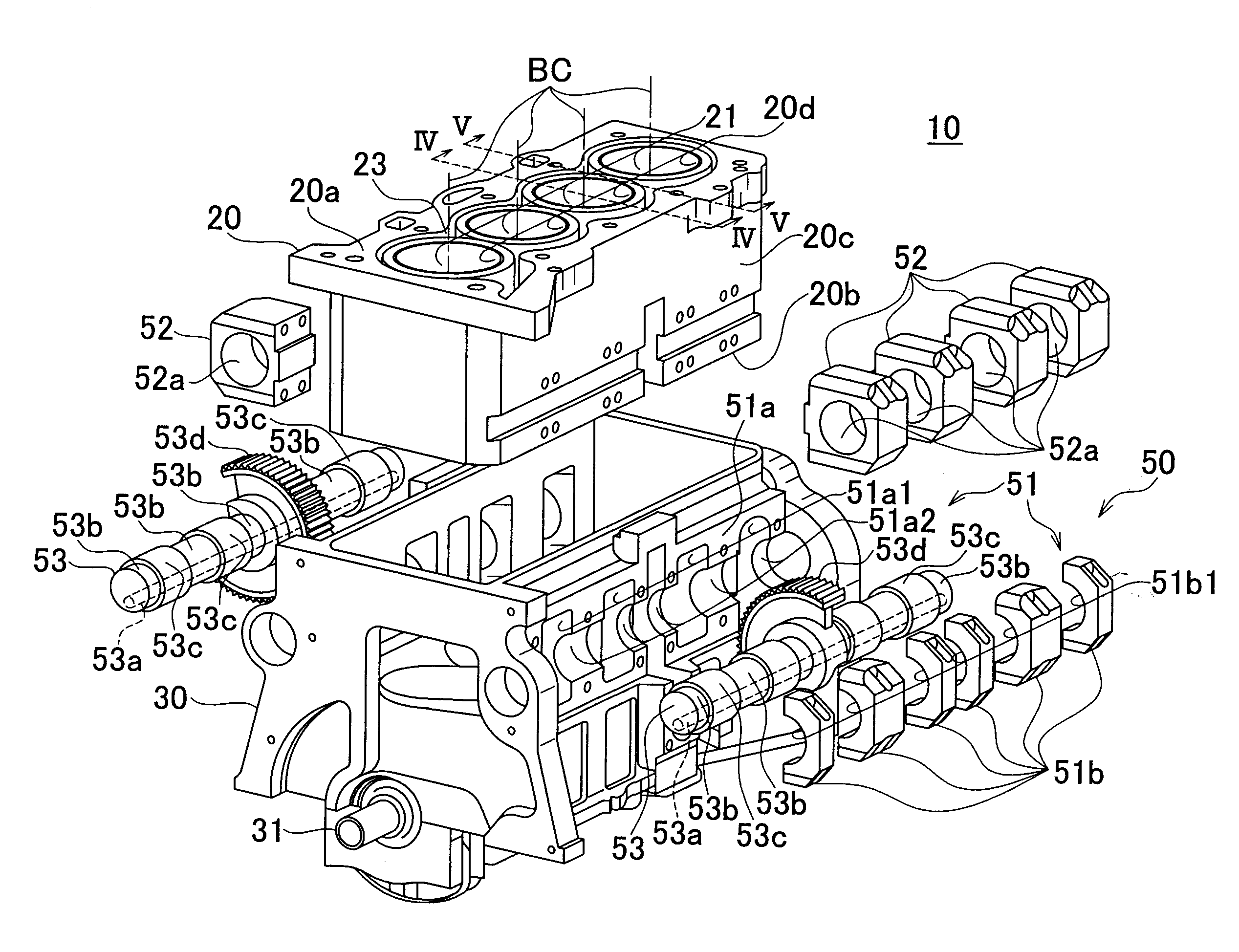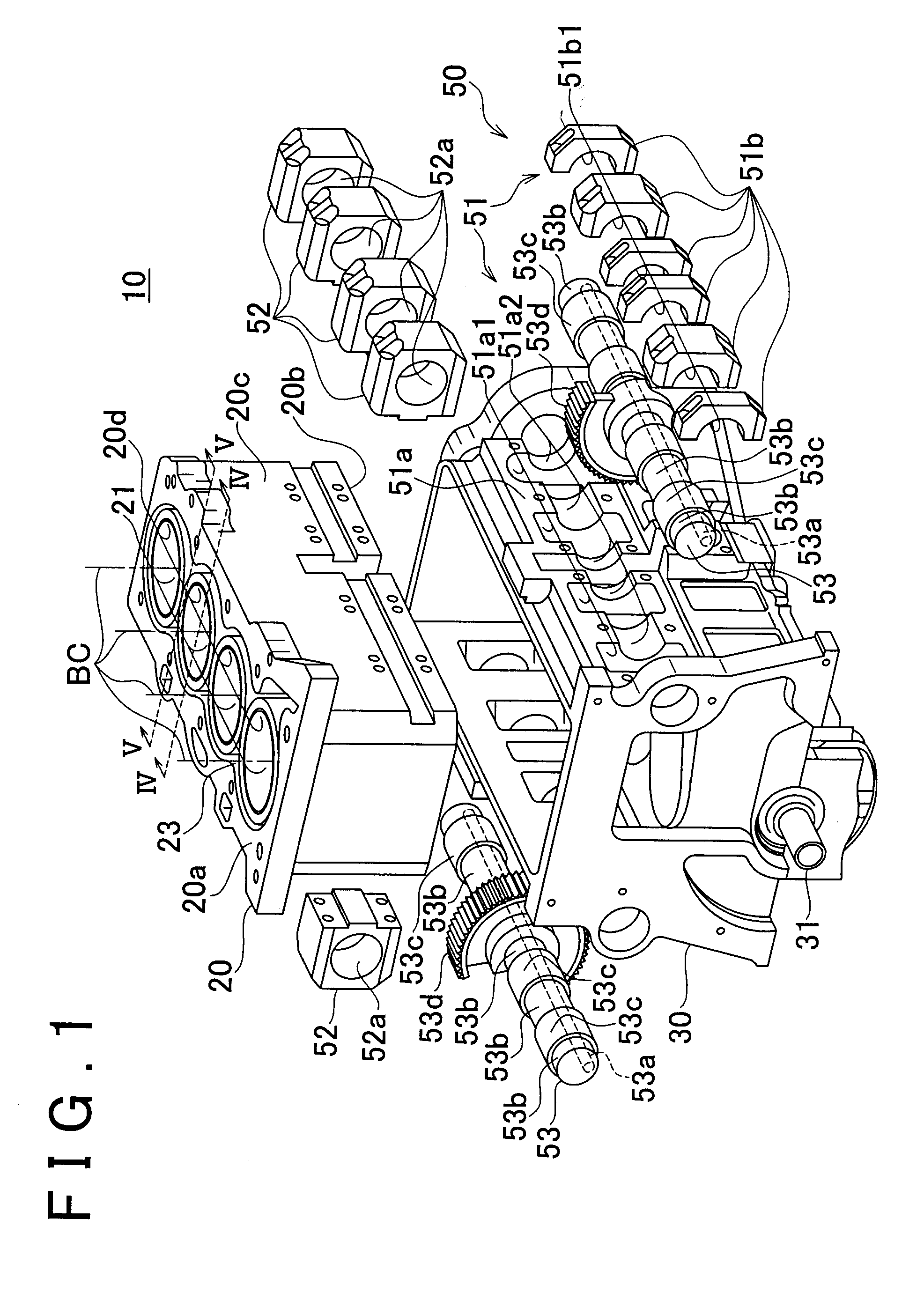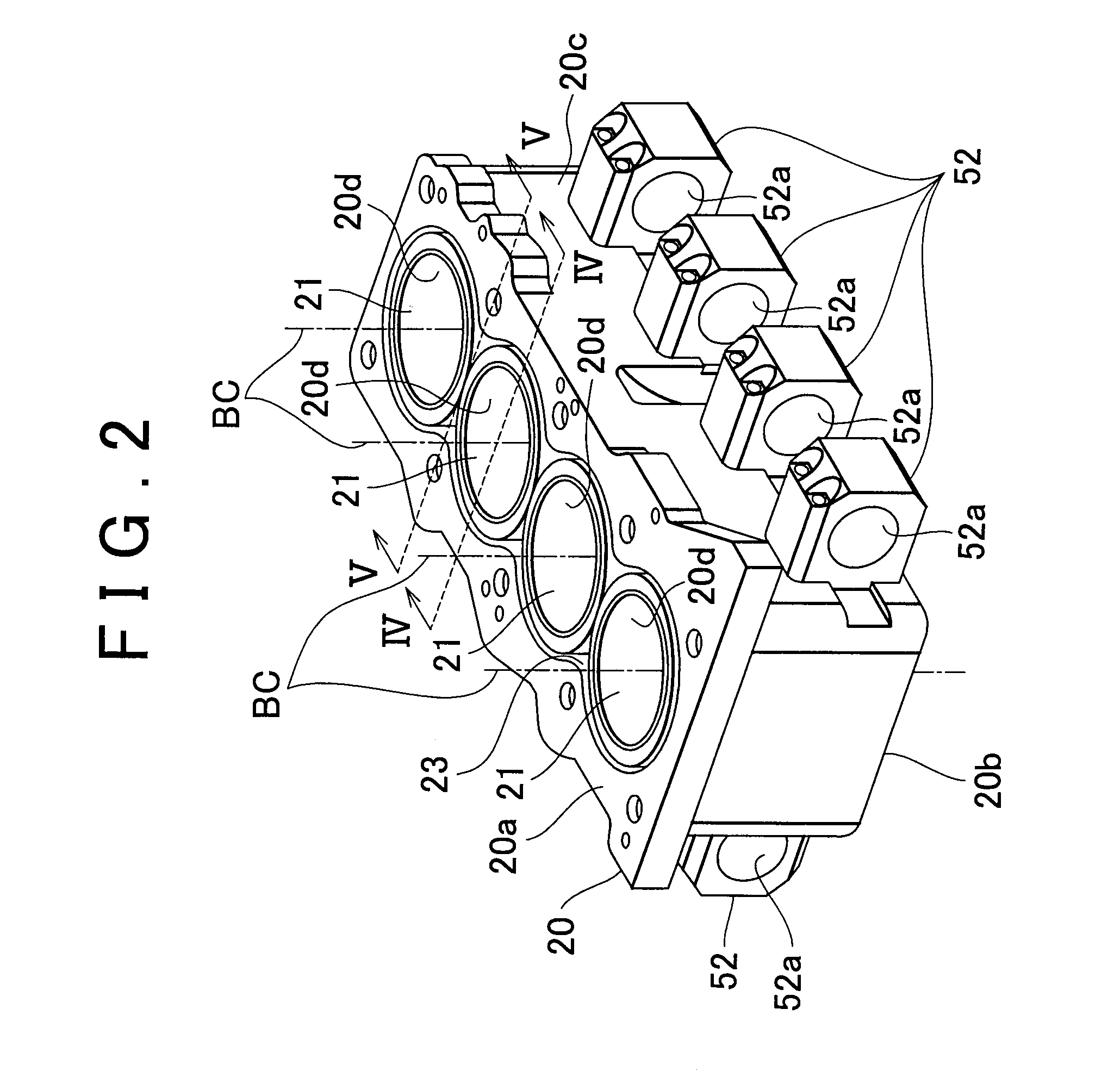Variable compression ratio internal combustion engine
- Summary
- Abstract
- Description
- Claims
- Application Information
AI Technical Summary
Benefits of technology
Problems solved by technology
Method used
Image
Examples
first embodiment
[0086] In the variable compression ratio internal combustion engine 10 in accordance with the first embodiment constructed as described above, when a mixture gas formed in a combustion chamber 41 burns, the pressure of gas in the combustion chamber 41 becomes very high. Due to this pressure, the lower surface 40a of the cylinder head 40 is pressed upward by a force F0a, and the top surface of the piston 22 is pressed downward by a force F0b. Therefore, a force F1a in the upward direction is exerted on the cylinder block 20 to which the cylinder head 40 is fixed, and a force F1b in the downward direction is exerted on the crankcase 30 that supports the crankshaft 31 linked to the piston 22. As a result, crankcase 30-side portions of the wall surfaces that define the bearing holes 52a of the block-side bearing-forming portions 52 receive a force F2 caused by the shaft-shaped drive portion 53, and are therefore pressed downward.
[0087]Since the force F2 acts at a position that is apart ...
second embodiment
[0103]According to the variable compression ratio internal combustion engine 10 in accordance with the second embodiment constructed as described above, when the block-side bearing-forming portions 52 press the outer wall surface 20c of the cylinder block 20 as described above, a stress having substantially the same magnitude as the aforementioned outer wall surface stress occurs in a portion of the cylinder block 20 that is on the outer wall surface 20c side of the reinforcement member 64 (outer wall surface-side portion of the cylinder block 20). At this time, since the rigidity of the reinforcement member 64 is higher than the rigidity of the cylinder block 20, the rigidity of the reinforcement member 64 makes the stress transmitted to the portion of the cylinder block 20 on the bore wall surface side of the reinforcement member 64 (the bore wall surface-side portion, i.e., the cylinder liners 20d) smaller than the outer wall surface stress. Therefore, the bore wall surface stres...
third embodiment
[0112]According to the variable compression ratio internal combustion engine 10 in accordance with the third embodiment constructed as described above, the cylinder block 20 has higher rigidity in the portions where a block-side bearing-forming portion 52 extends out than in other portions. Therefore, even when the pressing force F3 is exerted, the cylinder block 20 is unlikely to deform. That is, it becomes possible to make small the degree of the deformation of the bore wall surface caused by the pressing force F3 while restraining the increase in the weight of the cylinder block 20.
[0113]As described above, each of the variable compression ratio internal combustion engines according to the foregoing embodiments has a deformation-supressing structure. For example, the stress reduction groove portion, the structure of the cylinder block in which the position of the bore wall surface lower end is the same as the position of the block outer wall surface lower end, and the protruded p...
PUM
 Login to View More
Login to View More Abstract
Description
Claims
Application Information
 Login to View More
Login to View More - R&D
- Intellectual Property
- Life Sciences
- Materials
- Tech Scout
- Unparalleled Data Quality
- Higher Quality Content
- 60% Fewer Hallucinations
Browse by: Latest US Patents, China's latest patents, Technical Efficacy Thesaurus, Application Domain, Technology Topic, Popular Technical Reports.
© 2025 PatSnap. All rights reserved.Legal|Privacy policy|Modern Slavery Act Transparency Statement|Sitemap|About US| Contact US: help@patsnap.com



